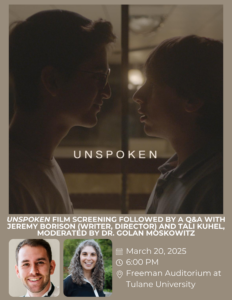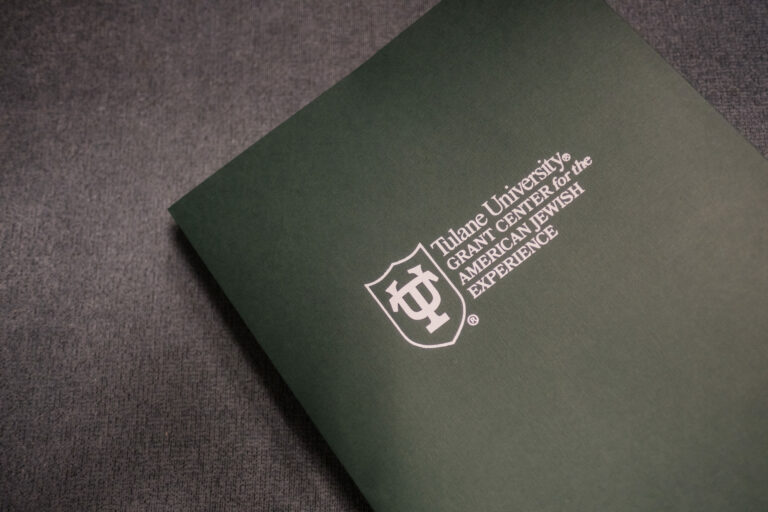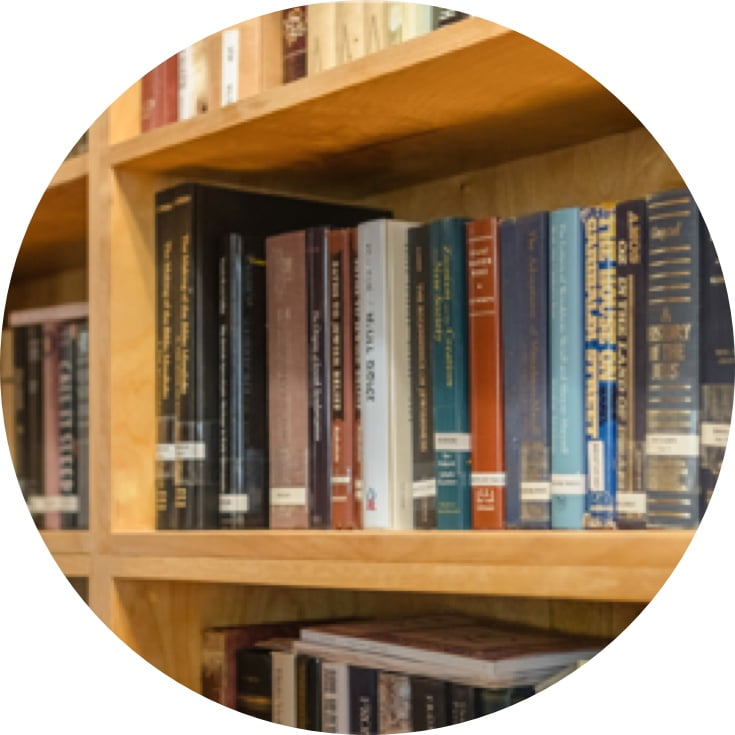Topic: Gender
Frankely Judaic Podcast: Golan Moskowitz, “Exploring Jewish American Drag: History, Identity, and Influence”
In this episode, cultural historian and literary scholar Golan Moskowitz discusses his current book project, which explores the cultural history of Jewish drag and its relationship with Jewish identity in America.
When Life’s a Drag: A Look into the History of Jews & Cross-Dressing Podcast Episode with Golan Moskowitz
Every year on Purim, Jews around the world stage shpiels, or plays, that not only feature people in costumes, but cross-dressing as well. These Purim events have allowed Jews to participate in drag throughout history, and have opened the door for other traditions like cross-casting in theater.
In this episode, we’ll hear from scholars Golan Moskowitz and Naomi Seidman and former drag queen Rabbi Amichai Lau-Lavie about Jewish historical examples of drag, Jewish contributions to the art and culture of drag, and how Jews have used drag to explore trauma, identity, and belonging.
Scholars in Session: Jews and Drag-An American Cultural History 1900-2020 with Dr. Golan Moskowitz at JCC Detroit
Golan Moskowitz, 2024-2025 University of Michigan Frankel Institute Fellow, explores the Jewish American cultural history of the gender-transcendent performance art of drag, from early twentieth-century Yiddish vaudeville through contemporary Emmy-winning reality television. Professor Moskowitz will discuss how marginalized Jewish artists, writers, and performers creatively process legacies of embodied otherness, focusing especially on Jewish American descendants of immigrants and Holocaust survivors, as well as on LGBTQ Jewish creatives.
Presented by SAJE (Seminars for Adult Jewish Enrichment). Co-Sponsored by the Frankel Institute for Advanced Judaic Studies, University of Michigan and JLearn.
Keshet Releases First-Ever Report on LGBTQ+ Jews of Color
Keshet, the leading national nonprofit advancing LGBTQ+ equality in Jewish life, has released a groundbreaking report, “Threads of Identity: LGBTQ+ Jews of Color in the Fabric of Jewish Life.” It is the first to comprehensively explore the unique experiences of LGBTQ+ Jews of Color, addressing a significant research gap within the Jewish community. Designed by and for LGBTQ+ Jews of Color, as well as Jewish leaders and community members, the report serves as a bridge to a deeper understanding of the experiences of LGBTQ+ Jews of Color and details how to create inviting Jewish communities of belonging that affirm LGBTQ+ community members of Color.

Queer Orthodox Jews and Holocaust Memory: ‘Unspoken’ Film Screening and Q&A
Join us as we screen Unspoken (2024), a groundbreaking new feature film following Noam, a closeted Jewish teenager in a religious community who discovers that

“Make me a King” Short Film Screening and Talkback
The Grant Center for the American Jewish Experience screened Make Me a King, a short film about Ari, a Jewish Drag King ostracized by their family,
America’s Jewish Women: A History from Colonial Times to Today
What does it mean to be a Jewish woman in America? Dr. Pamela S. Nadell explores her groundbreaking history of how Jewish women maintained their identity and influenced social activism as they wrote themselves into American history. Dr. Nadell’s book won the National Jewish Book Award–Everett Family Foundation Jewish Book of the Year.
What Girls Learn in Jewish Families | Professor Ilana Horwitz
“In the past, Jewish families, like many others, offered girls fewer educational opportunities than boys. But that has not been the case for some time
Moishe’s Queer and Wild Rumpus
In this episode, we speak with Golan Moskowitz, Assistant Professor in the Department of Jewish Studies at Tulane University, about Maurice Sendak. Golan discusses Sendak,
Ballots, Babies, & Banners of Peace
“Ballots, Babies, and Banners of Peace – Rottman Family Lecture Series with Dr. Melissa Klapper
This talk with Dr. Melissa Klapper will explore the social and political activism of American Jewish women from the 1890s through World War II, focusing on three mass women’s movements of the day: suffrage, birth control, and peace. No history of first wave feminism is complete without understanding the outsize impact of Jewish women on these movements and the powerful effect of their activism on contemporary American life.”
Golan Moskowitz introduces his book Wild Visionary
Wild Visionary reconsiders Maurice Sendak’s life and work in the context of his experience as a Jewish gay man. Maurice (Moishe) Bernard Sendak (1928–2012) was a fierce, romantic, and shockingly funny truth seeker who intervened in modern literature and culture. Raising the stakes of children’s books, Sendak painted childhood with the dark realism and wild imagination of his own sensitive “inner child,” drawing on the queer and Yiddish sensibilities that shaped his singular voice. Interweaving literary biography and cultural history, Golan Y. Moskowitz follows Sendak from his parents’ Brooklyn home to spaces of creative growth and artistic vision—from neighborhood movie palaces to Hell’s Kitchen, Greenwich Village, Fire Island, and the Connecticut country home he shared with Eugene Glynn, his partner of more than fifty years. Further, he analyzes Sendak’s investment in the figure of the endangered child in symbolic relation to collective touchstones that impacted the artist’s perspective—the Great Depression, the Holocaust, and the AIDS crisis. Through a deep exploration of Sendak’s picture books, interviews, and previously unstudied personal correspondence, Wild Visionary offers a sensitive portrait of the most beloved and enchanting picture-book artist of our time. For more information: https://www.sup.org/books/title/?id=31783
Yiddish Studies
At the annual Association for Jewish Studies (AJS) meeting this December, there was a notable refrain: “Yiddish is everywhere!” Over three days, more than forty panels, roundtables, and seminars featured at least one—and often more than one—presentation that substantially engaged with Yiddish-language materials. The topics ranged across fields, including history, literature, musicology





